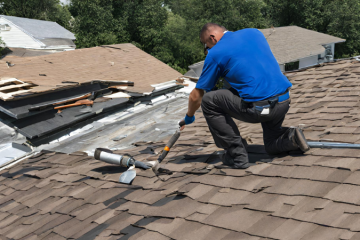Roofing construction projects require meticulous planning, coordination, and execution to ensure successful outcomes. From the initial concept and design phase to the final completion and handover, roofing construction companies play a critical role in managing every aspect of the project.
In this article, we delve into the comprehensive process of project management within a roof construction company, examining the key stages and strategies involved in bringing a roofing project from concept to completion.
Understanding Project Management in Roofing Construction
1. Defining the Project Scope
The first step in project management for roofing construction companies is defining the scope of the project. This involves clearly outlining the objectives, deliverables, and constraints of the project, including the type of roofing system to be installed, the size of the building, and any specific client requirements.
By establishing a clear project scope, roofing construction companies can effectively plan and allocate resources to meet project goals.
2. Planning and Scheduling
Once the project scope is defined, roofing construction companies develop detailed plans and schedules to guide the execution of the project. This includes identifying tasks, setting timelines, and allocating resources such as materials, equipment, and labor.
By creating a comprehensive project plan, roofing construction companies can minimize delays, optimize efficiency, and ensure timely completion of the project.
3. Procurement and Logistics
Procurement of materials and logistics management are essential components of project management in roofing construction. Roofing construction companies work closely with suppliers and vendors to source high-quality materials at competitive prices.
Additionally, they coordinate the delivery and storage of materials to ensure they are available when needed on the job site. Effective procurement and logistics management help prevent delays and minimize project costs.
4. Implementing Quality Control Measures
Maintaining quality control is paramount in roofing construction projects to ensure that the installed roofing system meets industry standards and client expectations. Roofing construction companies implement rigorous quality control measures throughout the project, including conducting pre-installation inspections, monitoring workmanship and materials during construction, and performing post-installation assessments. Any deviations or deficiencies are promptly identified and addressed to maintain the integrity and longevity of the roofing system.
5. Monitoring Progress and Performance
Continuous monitoring of progress and performance is essential for successful project management in roofing construction. Roofing construction companies track key performance indicators such as project milestones, budget adherence, and resource utilization to assess progress and identify areas for improvement. This may involve regular site visits, progress meetings with project teams, and utilization of project management software to monitor tasks and timelines in real-time. By closely monitoring progress and performance, roofing construction companies can proactively address issues and ensure that the project stays on track to meet client expectations and deadlines.
6. Managing Change and Adaptation
Flexibility and adaptability are critical in roofing construction projects, where unforeseen circumstances or changes in project requirements may arise. Roofing construction companies must effectively manage change by assessing the impact of proposed changes on project scope, schedule, and budget, and implementing appropriate adjustments as needed. This may involve negotiating change orders with clients, revising project plans and timelines, and reallocating resources to accommodate new requirements or mitigate risks. By proactively managing change, roofing construction companies can maintain project momentum and minimize disruptions to the construction process.
Execution and Monitoring
With the project plan in place, roofing construction companies proceed to the execution phase, where they oversee the actual installation of the roofing system. This involves coordinating labor, supervising work activities, and ensuring compliance with safety and quality standards.
Throughout the execution phase, roofing construction companies closely monitor progress, track key performance indicators, and address any issues or challenges that arise.
Quality Assurance and Control
Quality assurance and control are paramount in roofing construction projects to ensure that the installed roofing system meets industry standards and client expectations. Roofing construction companies conduct regular inspections and quality checks throughout the project to identify defects, deviations, or deficiencies in workmanship or materials.
Any issues are promptly addressed and corrected to maintain the integrity and longevity of the roofing system.
Client Communication and Stakeholder Management
Effective communication with clients and stakeholders is essential for the success of roofing construction projects. Roofing construction companies keep clients informed about project progress, milestones, and any changes or updates that may arise. They also address client concerns and requests in a timely and professional manner to maintain client satisfaction and trust throughout the project.
Conclusion
Roofing construction companies play a vital role in managing every aspect of roofing projects, from concept to completion. Through meticulous planning, coordination, and execution, these companies ensure that roofing projects are completed on time, within budget, and to the highest standards of quality and craftsmanship. By embracing best practices in project management, roofing construction companies uphold their reputation as trusted partners in delivering superior roofing solutions for residential, commercial, and industrial clients alike.




